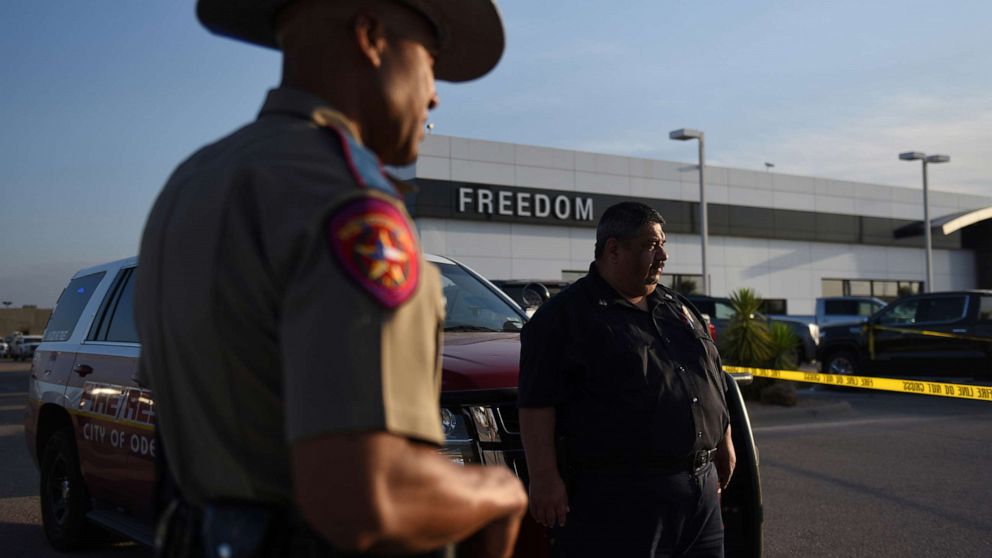Suspect in Odessa mass shooting made 'rambling' calls to police, FBI before rampage: Officials
The alleged gunman who killed seven people and injured more than 20 in Odessa and Midland in western Texas on Saturday called the police and an FBI tip line, making "rambling statements" about being fired by his employer before he went on his drive-by mass shooting rampage, police said on Monday.
Seth Aaron Ator, 36, was terminated from his job at the Journey Oilfield Service in Odessa on Saturday morning, just hours before he allegedly went on a killing spree and just minutes before he contacted law enforcement to complain about his employer, Odessa Police Chief Michael Gerke said at a news conference.
"Right after that firing, he called Odessa Police Department's 911, and so did his employer," Gerke said. "And basically they were complaining on each other because they had a disagreement over the firing."
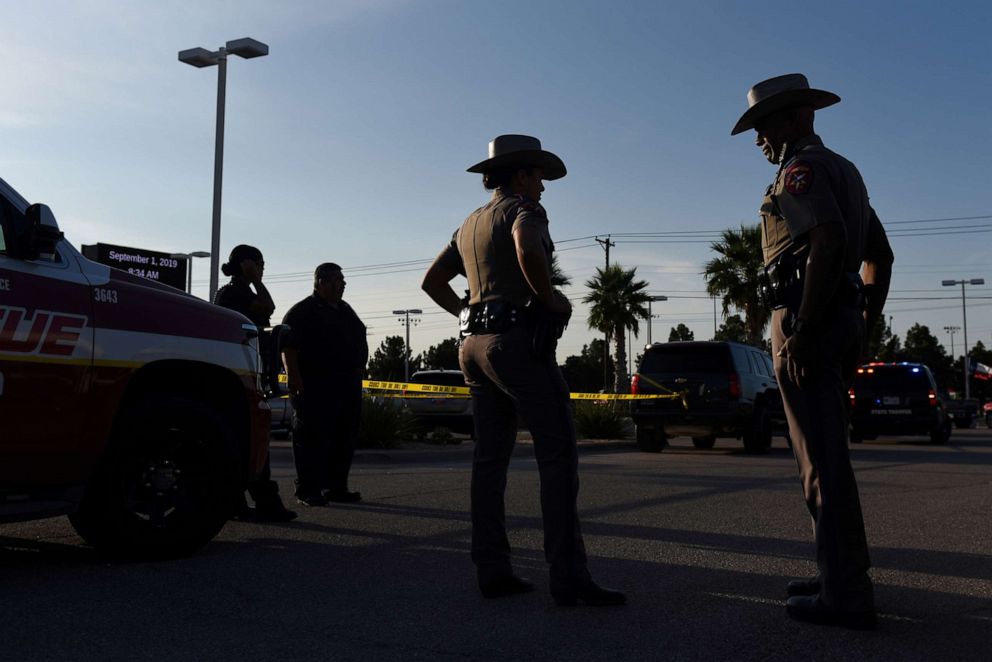
During the calls to the 911 center and a subsequent call to the FBI National Tip Line, Ator never made any threats of violence, Gerke said.
Christopher Combs, special agent in charge of the FBI field office in San Antonio, described the calls Ator made to law enforcement as the "rambling and incoherent" gibberish of someone in "great mental distress."
"Frankly, the dispatchers, the call takers, couldn't figure out what he was talking about," Combs said.
Combs said investigators do not believe being dismissed from his job prompted Ator to allegedly commit the massacre.
"He showed up to work in a very distressed mental state. So it's not because he got fired," Combs said. "This did not happen because he was fired. When he showed up to work he was already enraged."
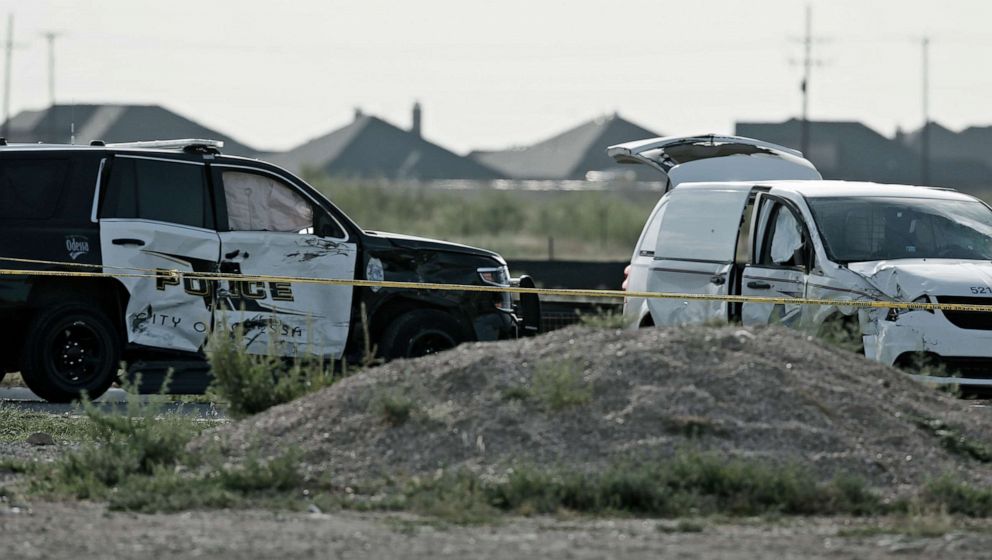
Combs said the condition of Ator's Odessa home when investigators searched it on Saturday also indicated the person who lived there was in the throes of mental instability.
"I can tell you the conditions reflect what we believe his mental state was going into this," Combs said. "He was on a long spiral of going down. He didn't wake up Saturday morning and walk into his company and then it happened. He went into that company in trouble. He's probably been in trouble for a while."
The shootings unfolded at 3:15 p.m. local time on Saturday, about 15 minutes after Ator called the FBI's National Tip Line, Combs said.
The first victim in the rampage was a Texas Department of Public Safety trooper who pulled the suspect over for failing to signal before making a turn, Gerke said. As the trooper approached the car, Ator allegedly opened fire with an AR-type assault rifle, wounding the trooper, he said.
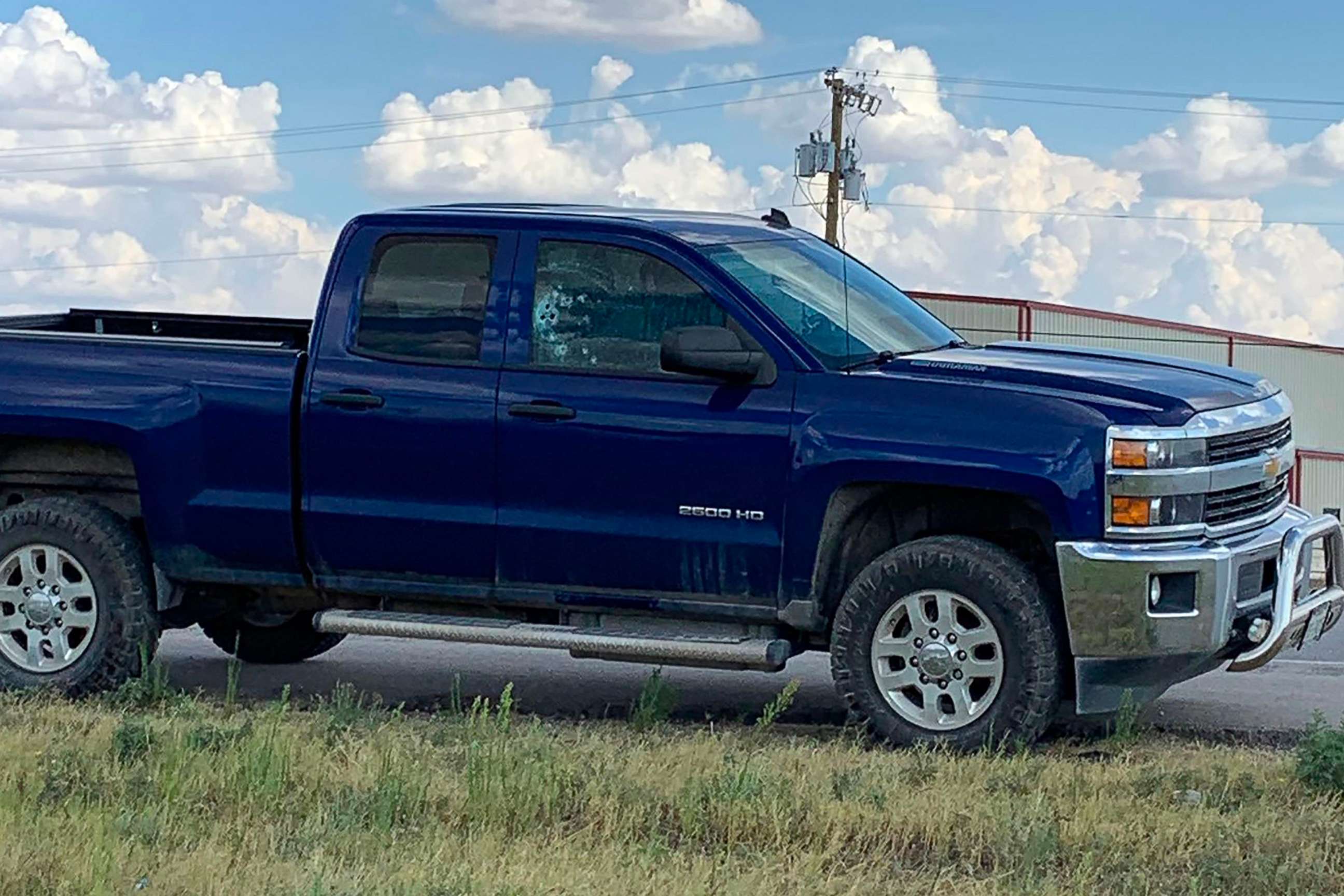
Gerke said the trooper had no prior knowledge of the phone calls Ator made to law enforcement before pulling the suspect over.
Ator then allegedly drove around in his vehicle randomly firing at victims in 20 different locations, including a car dealership and outside a movie theater, police said.
The victims killed ranged in age from 15 to 57.
One of the victims was Mary Granado, a 29-year-old U.S. Postal Service worker, who Ator allegedly shot to death during a carjacking, Gerke said.
The suspect allegedly ditched his car and stole Granado's postal service van after killing her, Gerke said. He continued driving around the Odessa area, firing at people at random, the chief said.
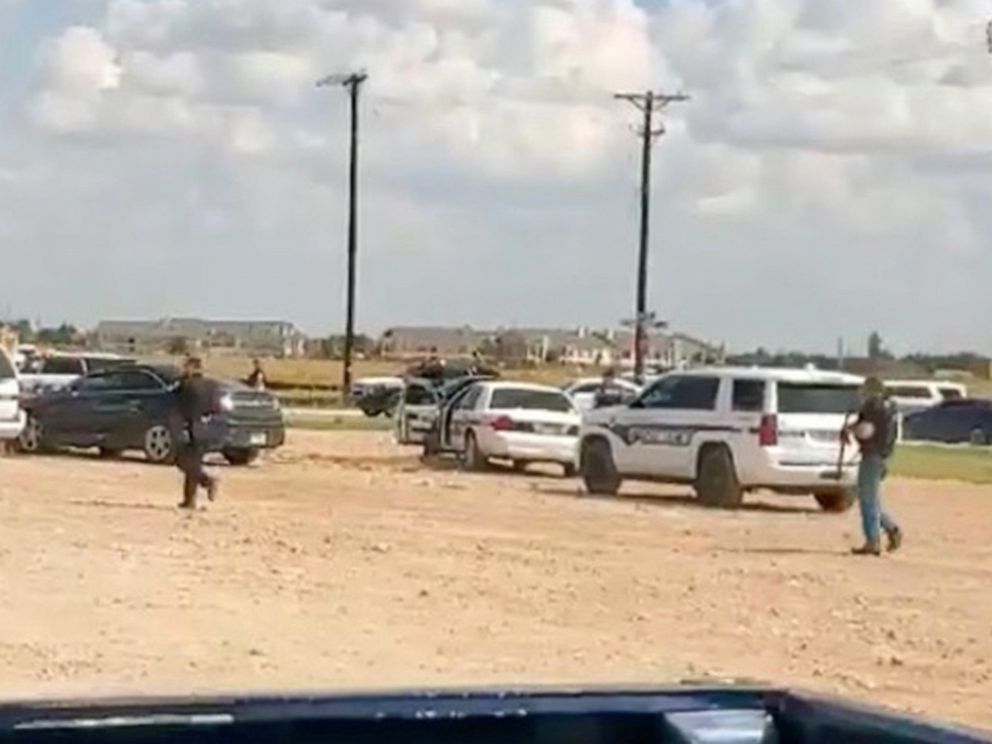
The alleged killer then sped toward the Cinergy center, a local entertainment complex that includes a cineplex and a laser-tag range.
Gerke said the carnage could have been much worse had the police not killed Ator before he got inside a crowded movie theater.
A cellphone video taken by a witness showed the suspect speeding toward a police roadblock outside the theater before a police officer in a marked SUV rammed the stolen postal van on the driver's side, causing it to spin out and stop. Within seconds, police opened fire on the van, killing the driver inside, Gerke said.
Gerke said the motive for the shooting may never be known because Ator is no longer alive to answer questions.
Investigators are also trying to determine how Ator obtained the AR-type weapon he used in the rampage.
Texas Gov. Gregg Abbott posted a message on Twitter on Monday saying Ator not only had a criminal record, but he had also once failed a background check when he tried to purchase a gun.
"He didn’t go thru a background check for the gun he used in Odessa," Abbott tweeted. "We must keep guns out of criminals’ hands."
According to online records in the Texas Department of Public Safety database, Ator did have a minor criminal history, as first reported Monday by the Austin American-Statesman newspaper.
The online records show that Ator was arrested on Aug. 1, 2001, for evading arrest and criminal trespass in McLennan County, Texas, when he was 18.
Ator pleaded guilty to the two misdemeanor charges and was sentenced to 24 months of court probation, according to the records.
Gerke said Odessa police also had several contacts with Ator for minor offenses, but added that wouldn't have prevented him from obtaining a license for a gun.
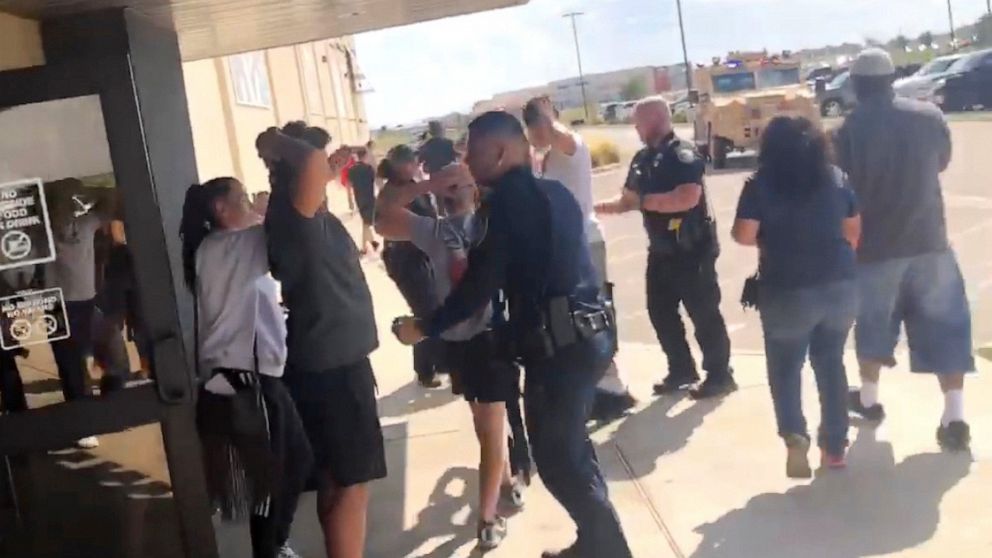
John Wester, a special agent for the federal Bureau of Alcohol, Tobacco, Firearms and Explosives, confirmed on Monday that Ator did fail a firearms background check.
"The background check was run through the National Instant Criminal Background Check System. The NIC system did work. He applied to get a gun. He was denied a gun," said Wester, who declined to say why Ator was rejected.
He said the investigation into how Ator got the weapon he allegedly used in the massacre remains under investigation.
Gerke also said that overnight, police learned about another victim wounded in the rampage, bringing the number of people injured to 23.
"It was a 70-year-old female who had been struck by shrapnel while in her car," Gerke said. "She took herself to the hospital and she was treated and released. So that's good news."
The mass shooting came exactly four weeks after 22 people were gunned down at a Walmart in El Paso, Texas, and another nine people killed the next day by another gunman in Dayton, Ohio.
The Odessa-Midland rampage was the fifth high-profile mass shooting in Texas since September 2017 that have left a combined 72 people dead and 79 wounded.
The shooting also came a day before eight new laws that ease restrictions on guns went into the effect in Texas, including prohibiting landlords from banning tenants from having guns in their apartments and allowing people licensed to carry concealed weapons to have firearms in churches and other places of worship.
